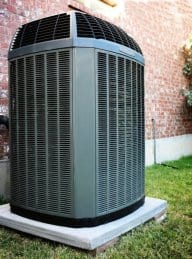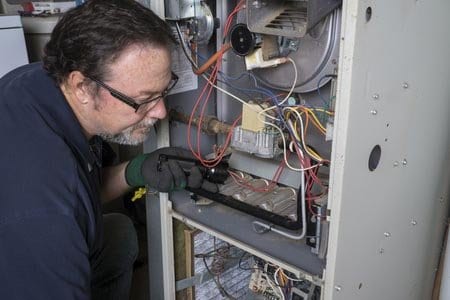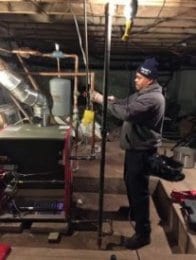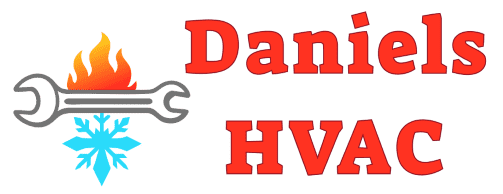FAQ for Heating Repair Philadelphia , Air Conditioning Repair Philadelphia



How does forced air gas heating technology in Philadelphia function?
When the thermostat determines that the temperature is cooler than what is set it signals the heating furnace to turn on. Inside the furnace a small exhaust blower activates to send the unused vent gas out the flue. This then allows gas and air into the “heat exchanger” to be ignited by a glowing igniter. As the gas burns it heats up the air in the heat exchanger. A blower then activates and blows the air warmed into the room through your duct system and registers. Daniels HVAC and Home services can help your with your heating furnace repair or replacement in Philadelphia.
If I replace my furnace do I need to replace it with the same size?
Usually not; depending on the age of your furnace, boiler, heat pump or heating unit: a new furnace runs more efficiently. As part of the inspection process a Daniels HVAC in Philadelphia representative will help you determine the right size furnace, boiler, heat pump or heating unit to properly heat your home.
My heat works but how do I know it’s time to replace my system?
When the furnace, boiler, heat pump or heating unit repair costs become burdensome, it is time to consider a new furnace. As a furnace, boiler, heat pump or heating unit ages, parts become scarce and more expensive. Often times a manufacturer only maintains replacement parts for 10 years so a furnace, boiler, heat pump or heating unit that is older than that… it becomes more difficult to get the replacement part. If the efficiency of your furnace, boiler, heat pump or heating unit is low, the time might be right to upgrade to a more efficient heating unit and save on monthly bills in Philadelphia.
What can I do to get my heating system ready for winter?
Having your furnace, boiler, heat pump or heating unit inspected and maintained by Daniels HVAC in Philadelphia will help to keep your unit running smooth and efficiently. Our years of experience with furnace, boiler, heat pump or heating units in Philadelphia will help us spot trouble before it leaves you cold in the middle of the night.
Why are there cracks in my gas furnace heat exchanger?
In the normal operation of a gas furnace, the heat exchanger continually is heated and cooled causing expansion and contraction of the metal. Over the years cracks will form in areas of the heat exchanger that are weak, such as welded areas. This is another reason to make sure a Daniels HVAC professional in Philadelphia inspects your unit to make sure everything is safe and ready for the cold. Daniels HVAC in Philadelphia promises to have the most competitive pricing on furnace, boiler, heat pump or heating unit repair, maintenance or replacement.
What are some ideas for saving money on our heating bills?
- Lower your thermostat a few degrees at night while you sleep. Reducing the temperature from 72 degrees to 67 degrees could save up to 10%. You can also have a Daniels HVAC professional in Philadelphia install a programmable thermostat that will do this automatically.
- Inspect your home in Philadelphia carefully for air leaks, especially around windows, doors, electrical switches and outlet plates on outside walls.
- Make sure your fireplace damper is closed tightly when the fireplace isn’t in use. Adding glass fireplace doors can reduce the loss of heated air when you are using the fireplace.
- Use kitchen, bath and other ventilation fans sparingly in cold weather. Exhaust fans remove a lot of heated air as heat rises and those fans usually are ceiling mounted.
- Ensure heat vents and air returns are not blocked.
- Have your furnace, boiler, heat pump or heating unit inspected and properly adjusted annually. A dirty furnace wastes a lot of energy, making it more expensive to operate.
- Consider replacing your furnace, boiler, heat pump or heating system with a new energy-saving furnace.
How often should I have my system serviced?
Air Conditioning and Heating units should be serviced annually. Be sure to schedule in your service BEFORE you need it! Daniels HVAC has been providing Philadelphia with high quality “comfort Service” for over 25 years. We offer Heat and Air Conditioning repair, maintenance, replacement and installation services in Philadelphia at competitive pricing and offer a guarantee on all services provided. Schedule your service today!
What are the benefits of having my equipment serviced?
Having Daniels HVAC in Philadelphia service your Air Conditioning & Heating systems:
- Help make sure your furnace, boiler, heat pump, heating unit or air conditioner is dependable.
- Helps your furnace, boiler, heat pump, heating unit or air conditioner to perform at maximum efficiency
- Lowers energy costs to operate your furnace, boiler, heat pump, heating unit or air conditioner in Philadelphia.
- Extends the life of the furnace, boiler, heat pump, heating unit or Air conditioner and makes sure the unit is operating safely and healthily.
How often should I change my furnace air filter?
Daniels HVAC service recommends you change your furnace or air conditioner filter every 30-45 days for best performance. This naturally depends on the type of heating or air conditioning system, the filter used and how much it is used. Daniels HVAC service in Philadelphia recommends to use a high end/ washable filter system for your heating and air conditioning system that has a little more upfront cost but saves you money over the long run.
What type of furnace filter should I use?
Standard heating and air conditioning filters perform well to keep your heating and air conditioning system and ducts clean, but do little for air quality. Daniels HVAC service can help you select the best filter for your home and make suggestions to improve air quality in your home in Philadelphia.
Does it matter the size of the system I get for my home?
Choosing the correct size heating and A/C System is very important for both longevity as well as cost of use in Philadelphia. Utilizing a system that is too large for the area may heat or cool too quickly, we have found that larger systems used in smaller area have wide temperature swings making it difficult to keep the home at a comfortable temperature. Naturally a smaller system is smaller but would cause the system to overwork raising the costs of repair as well as your monthly utility bill. We use proven measurements to make a recommendation of the unit perfectly balanced for your home.
